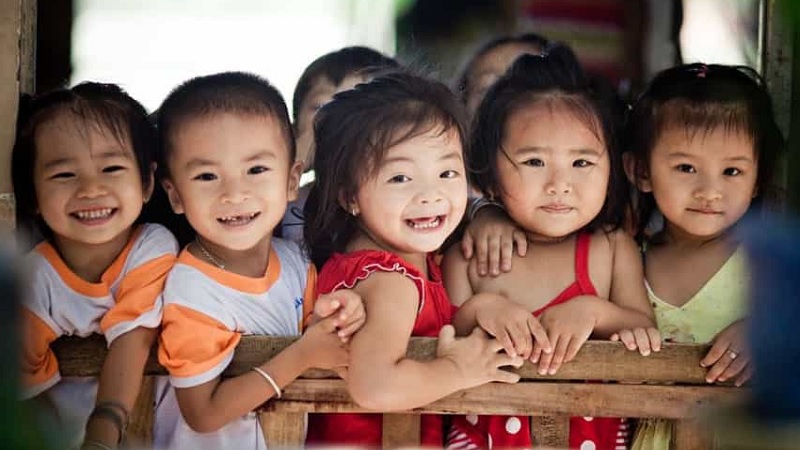Adopting a child is a wonderful way to grow your family and offer a child a nurturing home. As with any legal process, there are specific procedures and guidelines to follow. Here are some frequently asked questions about adoption in Vietnam, offering a comprehensive guide to the process:
1 What are the steps to adopt a child?
According to Articles 17, 18, and 19 of the Adoption Law, the process involves the following:
– Include a confirmation letter from your employer or the local People’s Committee with your adoption application.
– Sign a commitment to care for and educate the child. If you’re married, both spouses must sign.
– Obtain consent from the biological parents, guardian, or institution currently caring for the child.
 Adoption process is carefully regulated.
Adoption process is carefully regulated.
– Provide birth certificates and identification documents for both the adopter and adoptee. If the child is unregistered, birth registration is necessary before proceeding.
– Present household registration documents for both parties.
– Ensure the consent of a child 9 years or older.
2 Can adopted children live with their biological parents?
Article 21 of the 2010 Adoption Law states that before finalization, adoptees have the right to live with their biological parents. However, once the adoption is registered, adoptive parents assume full rights and obligations unless agreed otherwise.
3 How can I adopt an abandoned child?
Article 8 of the 2010 Adoption Law encourages the adoption of orphaned or abandoned children. If you meet the requirements, you can adopt immediately after the child’s birth. The process and documents are similar to standard adoption, as per Articles 17 and 18 of the Adoption Law.
 State encourages adoption of abandoned children.
State encourages adoption of abandoned children.
4 Does adoption establish a legal blood relationship?
For legal recognition, the local People’s Committee must approve the adoption. Article 24 of the 2010 Adoption Law outlines the consequences:
“Article 24. Consequences of Adoption:
1. Adoptive parents and adoptees have full parental and child rights and obligations from the date of receiving the child. The adoptee also has rights and duties towards the adoptive family as per marriage, civil, and other relevant laws.
2. The state agency can decide to change the adoptee’s surname and name upon the adoptive parents’ request. For children aged 9 or older, their consent is required.
 Adoptive parents assume full rights and duties.
Adoptive parents assume full rights and duties.
3. The ethnicity of an abandoned child follows that of the adoptive parents.
4. Biological parents no longer have rights or obligations towards the child unless agreed otherwise with the adoptive parents.”
Thus, the legal relationship is established through the adoption certificate, granting similar rights and duties as biological parents and children.
5 Where can I go to initiate the adoption process?
Article 9 of the Adoption Law outlines the registration process:
For domestic adoptions: Visit the People’s Committee where the adoptee or adopter resides.
For adoptions with foreign elements: Contact the provincial-level People’s Committee or Department of Justice where the adoptee lives.
For Vietnamese citizens abroad: Reach out to the representative agency of the Socialist Republic of Vietnam in that country, such as an embassy.
6 How much older must adoptive parents be?
Per Article 14 of the Adoption Law, adoptive parents must be at least 20 years older than the adoptee.
7 What is the age range for children eligible for adoption?
 Adoptees are typically under 16 years old.
Adoptees are typically under 16 years old.
Article 8 of the Adoption Law sets the requirements: Children under 16 can be adopted. For 16 to 18-year-olds, adoption is possible by a step-parent or blood relative (aunt, uncle, great-aunt, great-uncle, or cousin).
8 What makes an adoption legal?
A legal adoption follows the correct procedures and guidelines, with the adopter meeting the necessary requirements. It establishes the legal parent-child relationship.
9 Can grandparents adopt their grandchildren?
 Grandparents cannot adopt grandchildren.
Grandparents cannot adopt grandchildren.
Article 13 of the 2010 Adoption Law prohibits grandparents from adopting their grandchildren. Thus, it is not permitted.
We hope this guide has provided valuable insights into the adoption process and related matters in Vietnam.
You may also like:

































